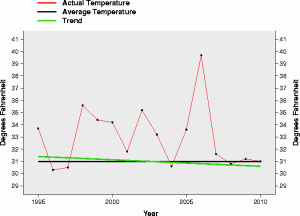There is a life lived within the rhythm of the seasons and the embrace of the land. A life where the cry of the chickadee announces a new season, a world where the return of salmon, silver in the whitewater, is celebrated as much, or more, than any holiday. In this life, the sheltered bend of the river where the trout linger, the trees where the red-tailed hawks live and the stubbled fields of water where the duck rest during their yearly pilgrimage are all known.
It is the world most of our ancestors lived in, the world, even, which many of our grandparents and great-grandparents lived in.
And it is the world that Oceanographer Carl Safina returns to in his striking book, The View From Lazy Point. Buying an old, run-down cottage in Long Island, on a peninsula called, as you’d expect, Lazy point, he settles back into a life where the seasons provide the frame of his life, and within that frame, he witnesses the comings and goings of the animals who are his neighbors, from red-tailed hawks and bluefish to frogs and even lowly earthworms. They great him in the morning or keep him awake at night, they feed him, and they announce to him, clearly, not just the changes of the seasons but the changes in our world.
And it is Safina’s meditations on those changes which move this book from a modern “Walden Pond”, as great as that would be, to something else.
For, really, this is a book about philosophy. It is about what it means to be human, to be, as Safina puts it, “self-assembled stardust aware of the universe and the future”, a wonderous miracle we rarely every think on. It is about what it means to be human in a world where the rhythms of life have been throw askew, indeed, burst asunder.
Long ago I remember reading accounts of the first explorers in the Grand Banks, off the Maritime coast of Canada. They could dip a bucket into the sea and it would come back with cod in it.
Today there is no cod fishery and hardly any cod in the Grand Banks. I remember, as a child, the warnings, again and again, that the cod fishery was in danger. That it could collapse.
Then it did, and it has never come back.
I shant bore you with all the statistics about how many species are going extinct every day. If you care, you’ve heard them a thousand times, if you don’t care, well, you’ve still heard them over and over again.
Those numbers are in Safina’s book, but they aren’t the heart of the book. The heart of the book is living with nature, and seeing, as the months roll on, not just how much has been lost, but how much remains and how beautiful it is, how rich it is, and how much a part of that world we are.
For that’s ultimately Safina’s point, a point made with more grace than this bundle of starlight can, though he’s not the first to make it, nor will he be the last. We are not separate from nature, we are a part of it. The web of life, the rhythm of the seasons, supports us as much as it does any other animal, any other life.
The great philosophers, the great prophets, one by one, have extended the circle of self-feeling out—have expanded the circle of compassion from kin, to tribe, to creed, and ultimately to all of humanity. If we fail often in this self-feeling, in this duty to love our neighbor as ourself, to treat all humans as means and not ends, well at least the great amongst us, whether Jesus or Socrates, have told us again and again that we are all one.
Another expansion of the circle, from all of humanity, to all of life, is now necessary. Not only are we not as different from the rest of the creatures living in the world as we might think, for all that we can imagine the future better than any of them, including the disasters to come, but until we start treating their concerns as our concerns, well, those disasters will happen. The world is great, the world is fecund, but the world is finite. There is only so much life it can support, and as with any other animal, if we put too much of a burden on the world, we shall pay the price in death and deprivation, in disaster and even catastrophe. One day the species dying off may be ours.
This extra circle of inclusion, this extra step, however, need not be feared as so many do, as if caring is some horrible burden. Compassion is the truest beauty of the human spirit, and in embracing all life, we make of ourselves something greater, something bigger, something more beautiful than we are, even as embracing humanity as a whole has created our greatest souls and our most beautiful dreams and accomplishments.
This, ultimately, I think, is Safina’s message, and it is a message more beautifully told than I can do justice to. Read his book and remember, or learn, what is to live in the embrace of the seasons and to see in all life oneself.

